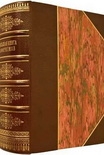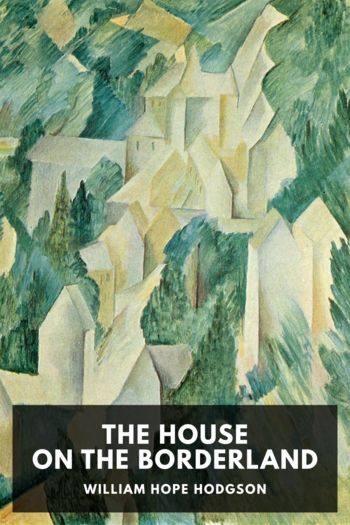Gluck by Diana Souhami (most interesting books to read .TXT) 📗

- Author: Diana Souhami
Book online «Gluck by Diana Souhami (most interesting books to read .TXT) 📗». Author Diana Souhami
‘Differ and separate and you are undone.’ ‘L’Union Fait La Force.’ All that he, his father, his brothers and The Family had worked for, his daughter had thrown in his face, for the sake of something he could not understand and which seemed to him scandalous. He did not forgive her for it.
THREE
STAGE AND COUNTRY
In Lamorna Gluck felt as free as air, her spirits high. The simplicity of the place delighted her. It was a hamlet of houses in a wooded valley with a stream flowing into the sea at Lamorna Cove. All around were moorlands, standing stones and a rugged coast. ‘If ever a country was “pixielated” and primitive it is Cornwall,’ she wrote.1 She developed a deep love for south-west Cornwall and all her life kept a studio there. ‘My landscapes were the first that truthfully showed the immediate impression one gets there – that of very little land and great expanses of sky.’2 She regarded herself as an English painter, ‘I never want to paint really in any other country, though I might enjoy them to look at …’3
Lamorna Birch lived in the old coastguard’s house, Laura Knight worked in the ‘Letter Studio’, Munnings lived at ‘The Wink’, the local inn, and painted at the mill nearby. They gave critical appraisal to her work: ‘Laura Knight is coming this morning to have a private view of the work I have done down here,’ Gluck wrote to her brother (29 August 1918). ‘A very harrowing moment mon cher! Pity me.’
Her flight to Lamorna was the making of her, as a painter and a rebel. She could be who and how she wanted. It was a bonus to wear chappish clothes and to smoke a pipe. ‘My dear my pipe is a boon and a blessing to me,’ she told Louis. ‘I have had some gorgeous moments with it. It is going a perfectly lovely colour and is the envy of Lamorna. Our sketching permits [needed for working out of doors in wartime] came last night, so work begins. Hurrah!’4 Her brother also gave her a man’s swimming costume, large Italian handkerchiefs and a cloak.
She painted in a twelve by eight foot hut and rented a primitive cottage to live in with Craig.
The only drawbacks which have appeared at present are a few woodlice which parade our bedroom and the Auntie. Oh Luigi the Auntie is appalling! It is in the yard not in the house at all. It looks ordinary enough when you approach it but is really an ordinary seat just over ordinary ground and the smell! Lor blimey lor! Otherwise the place is stunning. We have a very comfortable sitting room and bedroom.5
They spent summers in Lamorna and winters in a flat in north London, in the Finchley Road. Gluck set her sights on producing enough for a ‘one-man show’ at a London gallery. She painted the Lamorna valley and cove, the quarry, the cliffs, the path into the hills and the incoming tide, the sun breaking through rain clouds on fields and a hamlet. She painted white clouds ‘in full sail’ scudding across a windswept sky and the evening star in a moonlit sky. Expanses of ever-changing sky featured again and again in her landscapes, many of which seem like skyscapes with few details of earthly life:
The sky is a bowl, not a flat backcloth and its colour and light reflect in every blade of grass, every twig … the colour of the sky permeates the landscape under that sky and for your grass or trees to look as if that colour was the last ever to reach them would mean you had been insensitive to their relationship with the sky and seen them by themselves, isolated in their uncompromising green or brown. Some of the sky must have caressed their leaves or twigs, or be dancing between the grasses, or lying mirrored on the waters, however shyly …
Wind and weather change continuously, a landscape is chameleon to the light. Are you so truly sensitive to the one you have chosen as your subject that you have caught just the inflections in the voices of the trees and fields when singing to the sky above them? Will this note have reached you so clearly that no matter what changes and interruptions occur you will, like a good tuning fork, continue to vibrate to that note unerringly?6
She drew Phyllis Crocker who lived with her three daughters in a bungalow near Penzance. Mr Crocker, a dentist and dipsomaniac with a passion for sailing and fishing, would go to the Scilly Isles in his boat, fish there, then arrive home drunk. Phyllis Crocker left him to marry an antiquarian bookseller, who stayed in Lamorna with his Italian business partner, Guiseppe ‘Pino’ Orioli, whom Gluck painted too. He wrote an anecdotal book Adventures of a Bookseller about his travels, and meetings with writers like D. H. Lawrence, D’Annunzio and the poet John Ellingham Brooks, who married Romaine Brooks.
Gluck stayed with the painter Ella Naper in a primitive hut on the Bodmin Moors by Dozmare Pool where the landscape was at its wildest. Laura Knight described Ella as ‘an adorably lovely creature’ who, when she chose, wore workmen’s corduroy trousers, smoked a clay pipe and bathed naked off the rocks.7 Gluck did several pictures of herself and Ella. While Ella washes clothes in the pool, rakes leaves for a bonfire and stands in a meadow in a clinging dress, with her dog Minchi Fu, Gluck





Comments (0)